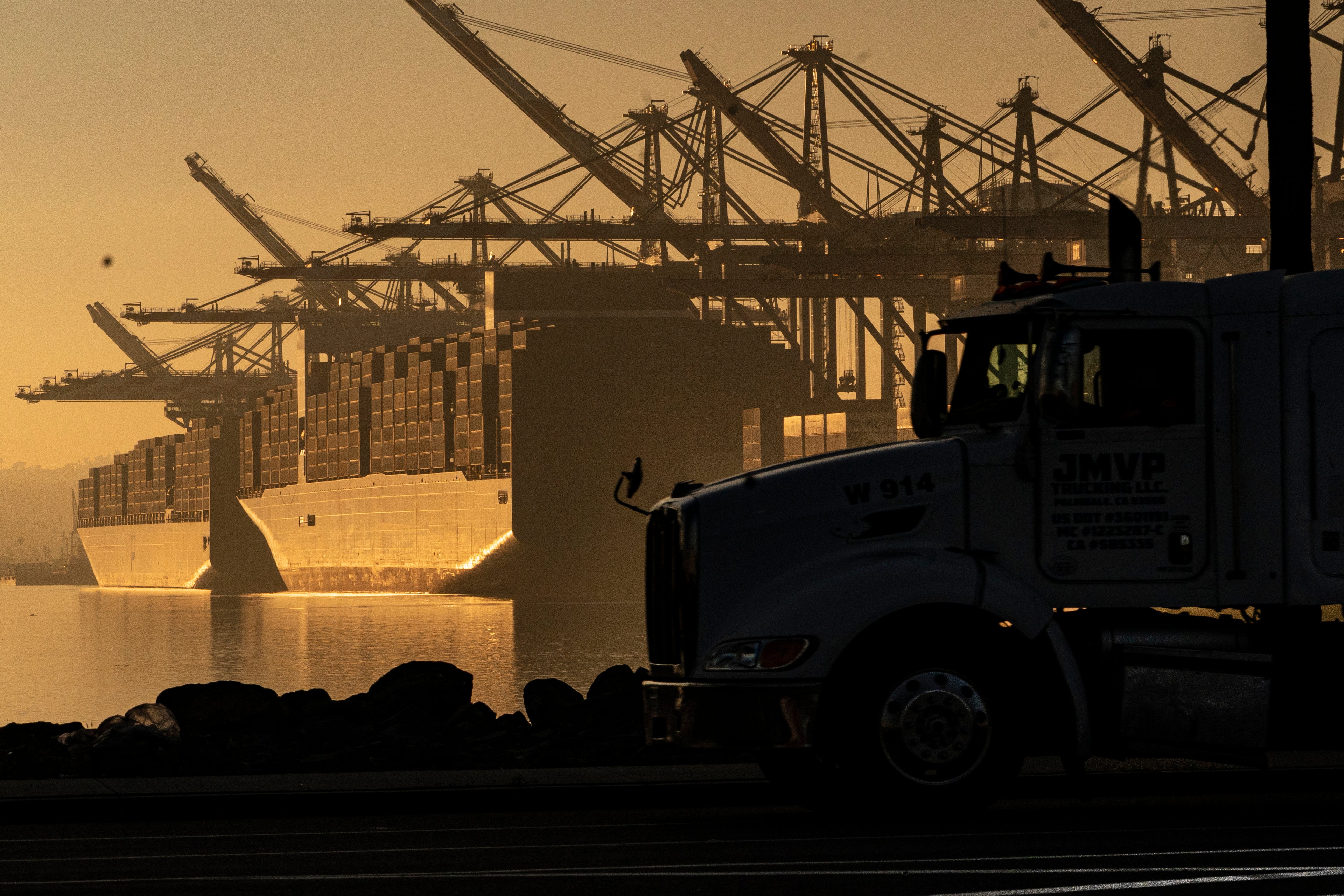We need to rethink the economic rules around supply chains
Globalisation is not a natural phenomenon, but the result of choices by politicians and businesses. So changes can – and should – be made, writes Phil Thornton, particularly in times of crisis


The stark images of empty supermarket shelves and queues at petrol stations at points this year have been disconcerting. But we cannot say we were not warned about the threat of a supply chain crisis.
As Ian Wright, chief executive of the Food and Drink Federation previously told MPs in October, business now expects the current crisis to last until “2023 and into 2024”. He added: “It is a very long‑term thing.”
The last decade and a bit have shown how vulnerable global supply chains are. The cause of the 2008 global finance crisis was a credit crunch, as banks realised they had no idea whether their trading partners were financially sound and shut down their lending operations. World trade experienced a sudden, severe and synchronised collapse.
Three years later, Japan’s Fukushima nuclear disaster showed how natural disasters can impact supply chains and the global economy. Last year’s implementation of a “hard” Brexit that pulled the UK out of the EU single market and customs union created a raft of bureaucracy that left lorries queuing up to cross the channel. While in March, the grounding of the Evergrande container ship shut the Suez Canal.
All these episodes are a reminder that modern supply chains have been built around the principle of maximising economic efficiency. If manufacturers can reach across the world to find the cheapest and quickest sources for their parts and semi-manufactured supplies, and pass that on in the form of lower prices, then they will. If that involved replacing workers in their host country with cheaper labour elsewhere, so be it.
The international global supply chain hit a peak in the first decade of the new millennium when the “great moderation” – stable growth, low inflation and few conflicts between the main trading partners – helped create what became known as the “flat earth phenomenon”. Popularised in the book The World is Flat by Thomas Friedman, it highlighted how multinational companies drove global integration, not just in manufacturing, but also for services such as call centre operators to accountants and computer programmers.
On top of that, globalisation created a giant open market for financial products to be bought and sold across the world. But as some economists have warned, the more complex a supply chain becomes, the greater the economic risks. A break in one link can shatter the whole chain and send prices soaring if it creates sudden shortages.
The global financial crisis was a reminder of the vulnerability of the global value chain to a breakdown in banking, Fukushima of the impact of a natural disaster, Brexit of the effects of a political rupture and obviously Covid for pandemic shocks.
Economies – such as the UK and the US – whose companies are closely tied to the global value chain (where components or services are imported to produce goods or services which can then be exported elsewhere) have seen the writing on the wall. As long ago as 2015, the UK’s coalition government warned that for 30 years “globalisation combined with gaps in support for the commercialisation of innovation and technology… [has] eroded UK industrial capabilities and led to the hollowing out of supply chains across our manufacturing sectors.”
More recently, Joe Biden’s White House issued a review which said that for years the private sector and public policy has prioritised “efficiency and low costs over security, sustainability and resilience”. It highlighted how semiconductors – one of the worst affected items in the Covid pandemic – often cross international borders 70 times in the production process.
The paper made clear that it is not possible for a country to produce all that it needs domestically. Indeed, it would run against 300 years of economic theory and panders to those who would want to close our borders for their own nationalistic reasons.
Instead, this is an opportunity for a “build back better” programme that actually means something. The government has an array of tax incentives, labour laws, fiscal subsidies, and environmental regulations at its disposal. If it wants to invest in innovative infrastructure, it can. If it wants to ensure that ownership of innovative companies remains on home soil rather than moving overseas, it can. If it wants to impose a carbon tax on imported raw materials, it can.
Globalisation is not holy writ; it is the result of political decisions made by governments and self-interested choices made by private companies. Governments can change the way the global economy works and given the issues over supply chains, it is high time that they did.






Join our commenting forum
Join thought-provoking conversations, follow other Independent readers and see their replies
Comments